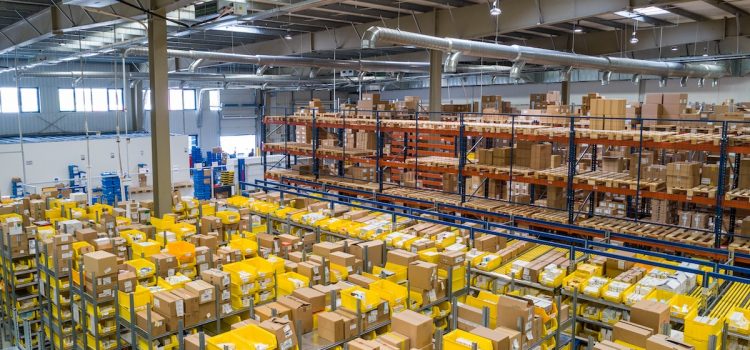

This article is an excerpt from the Shortform book guide to "The Four" by Scott Galloway. Shortform has the world's best summaries and analyses of books you should be reading.
Like this article? Sign up for a free trial here.
What effect do Amazon’s automated processes have on jobs? How are Facebook and Google eliminating jobs?
The products and services from Amazon, Facebook, and Google fulfill some of our deepest human needs. However, they’re taking away our livelihoods, says Scott Galloway. He argues that these companies destroy more jobs than they create.
Keep reading to learn how job elimination in their own and their competitors’ workplaces is caused by Amazon’s emphasis on automation and Facebook and Google’s massive advertising capabilities.
Job Elimination in Big Tech
Amazon’s automation of its warehouses results in job elimination. One of Amazon’s core competencies is actually robotics, but Amazon doesn’t talk about this publicly because it would be bad PR to advertise technology that eliminates jobs. Galloway predicts that, eventually, stores like Walmart that rely on minimum wage workers will disappear due to their inability to compete with Amazon’s reliance on zero-wage robots. In addition, Amazon Go, a cashier-less store, has pushed other retailers to work on eliminating their checkout process. This could ultimately lead to the loss of 3.4 million more jobs.
(Shortform note: Job-eliminating practices such as automation have other negative consequences on the job market, too. Even when automation doesn’t result in significant job loss, it can lead to a rise in “microwork”: very low-paying, sporadic work with no benefits that involves humans helping artificial intelligence interpret digital information. For example, microwork might involve humans telling a computer what type of objects it’s “seeing” in a photo. Not only is Amazon automating its warehouses, but it has also created a crowdsourcing site, Amazon Mechanical Turk, on which businesses can hire remote workers to perform such microwork.)
Just as Amazon is eliminating jobs through automation, Facebook and Google are eliminating jobs in the advertising industry. Galloway points out that Facebook (and Facebook-owned Instagram) is now the world’s biggest seller of display advertising. It’s unique among advertisers because it combines scale (number of customers reached) and targetability (ability to target a specific group of customers). For example, an advertiser could ask for its ads to be targeted to all the Gen X women in the San Francisco Bay Area who are recently divorced and planning a wine country weekend with their girlfriends, and, based on its vast data trove, Facebook could deliver those customers.
Because advertising is a low-growth industry, Galloway says it’s essentially zero-sum: Facebook and Google can’t grow without taking money and jobs away from other advertising firms. In addition to destroying jobs in the advertising industry, Facebook and Google’s digital advertising capabilities are also hastening the decline of print media such as newspapers and magazines, which rely on advertising to survive.
(Shortform note: While statistics directly linking Facebook and Google to job loss in advertising and print media are scarce, the statistics do clearly demonstrate a decline in traditional advertising and print media in recent years. For example, Facebook and Google together commanded a 61% share of the global online ad market in 2019, up from 56% in 2018. During that time, their ad revenues increased by 22%. And print media advertising revenue is projected to fall from $46 billion in 2012 to approximately $12 billion in 2024. In addition, between 2008 and 2020, overall newspaper employment dropped by 57%.)

———End of Preview———
Like what you just read? Read the rest of the world's best book summary and analysis of Scott Galloway's "The Four" at Shortform.
Here's what you'll find in our full The Four summary:
- A hard look at the success of Amazon, Apple, Facebook, and Google
- How The Four have had a profound and negative impact on our society
- How to make it in the cutthroat economy created by The Four






